
Fast, affordable Internet access for all.

With the end of the Affordable Connectivity Program (ACP) upon us, digital inclusion practitioners are encouraged to save the date for the second Building for Digital Equity (#B4DE) event of the year.
The popular (and free) virtual gathering – co-hosted by Institute for Local Self Reliance (ILSR) Community Broadband Networks Initiative and the National Digital Inclusion Alliance (NDIA) – will be held on June 10, 2024 from 3 to 4:15 PM ET.
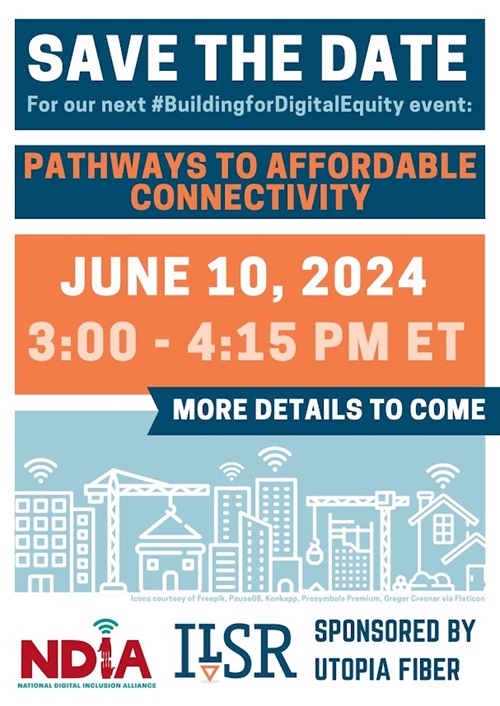
Coming on the heels of our last B4DE event in March, the theme for this installment will be “Pathways to Affordable Connectivity.”
It will feature an informative agenda that focuses on what digital equity advocates across the nation are doing to address broadband affordability and the pressing need for creating sustainable solutions for communities.
You can register for the event here.
As with the previous #B4DE events, the June live stream will once again be sponsored by UTOPIA Fiber and co-hosted by NDIA’s Pamela Rosales and ILSR’s Community Broadband Networks Initiative Director Christopher Mitchell.
With Big Telecom’s assault-on-competition campaign as loud (and misleading) as ever, a small municipal broadband utility in Massachusetts is quietly showcasing one of the many reasons why building publicly-owned, locally controlled broadband infrastructure is gaining in popularity, racking up awards, and earning high subscriber satisfaction rates in communities across the nation.
With an eye on keeping local dollars close to home for community investments, last week the Westfield City Council voted to approve an $11.1 million bond for a new athletic track and field at the local high school, thanks to the success of Westfield Gas & Electric’s broadband subsidiary Whip City Fiber. And though the return on investment may not be as eye-popping as the $2.7 billion Chattanooga's municipal network, EPB Fiber, has reaped in Tennessee, Westfield officials hailed the community investment as a “huge moment” for local residents.
Massachusetts and New York officials hope to entice affordable housing property owners with new grant programs that would pay the retrofitting costs to expand high-speed Internet connectivity into decades-old affordable housing developments.
The programs aim to focus on the multitude of multi-dwelling units (MDUs) in those states, particularly housing developments built before the advent of the Internet.
With property owners and Internet service providers (ISPs) often reluctant to pay the costs of getting these buildings up to broadband speed, Massachusetts and New York have launched initiatives – using a portion of their federal broadband funds – to chip away at the digital divide in housing developments where a significant number of tenants live in buildings not wired to support reliable broadband or where the service is not affordable, thanks to agreements with monopoly providers.
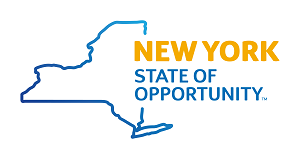
New York Bytes Into Broadband Affordability
In December, New York Governor Kathy Hochul’s office announced the state’s ConnectALL Office (CAO) was setting aside $100 million New York State received from the federal Capital Projects Fund (courtesy of the American Rescue Plan Act) to bring broadband connectivity to 100,000 affordable housing units across the Empire State.
In announcing New York's Affordable Housing Connectivity Program, Hochul said:
“With work, school, and essential government services going digital, affordable homes need affordable, reliable broadband, and this funding will help bolster our efforts to build housing equipped with the basic tools that New Yorkers need to succeed.”
Since it first broke ground in 2014, Longmont, Colorado’s community-owned NextLight fiber network has won numerous awards and inspired countless communities nationwide.
With its citywide deployment nearing completion, and counterproductive state legal restrictions in the rear view mirror, city leaders are now working to expand the network beyond city limits.
City officials tell ILSR that network construction has now crossed north of Colorado Highway 66, outside of city limits and into the Anhawa and Strawberry Circle neighborhoods. The extension will bring service to around 125 homes that previously had access to Longmont electrical utility service, but not broadband.
Longmont officials say this latest expansion is being financed entirely by subscriber revenues and money set aside for capital projects, with no bonding or other supplementary funds involved.
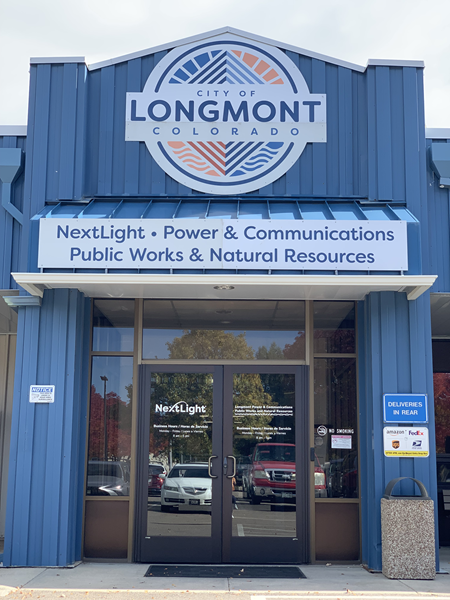
“We’ve been carefully evaluating our opportunities for expansion in order to make best use of the community’s resources,” NextLight’s Scott Rochat told ILSR. “Our total investment in this project is just under $300,000; based on our typical rate of adoption, we expect to see about a five-year payback. This also has the benefit of giving us a foothold on the north side of (Highway) 66 to help facilitate more expansion in the future.”
West Springfield residents recently gathered to break ground on a plan to deliver affordable fiber access to all 28,000 city residents. The effort, first conceived in 2021 during the height of the pandemic, involves working with Westfield Gas and Electric's broadband subsidiary Whip City Fiber to deliver symmetrical gigabit fiber.
Whip City only currently offers residential customers one tier of service: symmetrical gigabit fiber for $75 a month. A recent OpenVault report found that the percentage of subscribers on gigabit speed tiers grew 29 percent last year, with one-third of subscribers now provisioned for gigabit speeds. Whip City users can also access phone service for an additional $20 a month.
The first subscribers should be lit up for service by the end of this year, officials say. It’s the culmination of a project that began in 2019 when city officials first considered the construction of a city-owned broadband network; emboldened in 2020 after city leaders and locals alike became frustrated by Comcast’s implementation of technically unnecessary and punitive usage caps.
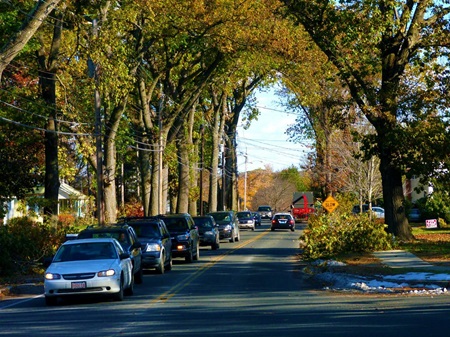
In 2021 West Springfield voted to establish a public utility department tasked with creating a town-owned fiber-optic cable network. They urged locals to sign up for a $1.5 million pilot program in four local neighborhoods, and submitted applications to Verizon and Eversource to ensure access to utility poles to begin “make ready” fiber attachment preparations.
Selma, Alabama – and parts of 16 other communities in eight different counties – will soon be connected to a new, $230 million open access fiber network that aims to bring affordable broadband to historically marginalized sections of the Yellowhammer State.
The deployment comes courtesy of a public private partnership (PPP) the city has struck with Meridiam Infrastructure and Meridiam-owned YellowHammer IT, an agreement that will expand fiber access across Alabama’s Black Belt region on the back of a $5.1 million Capital Projects Fund (CPF) grant.
At a March 2 press conference, Selma Mayor James Perkins Jr. said the partnership with Meridiam and Yellowhammer should result in fiber access being deployed to 85 percent of city homes and businesses, regardless of residents’ income levels, with $45 million of the $230 million investment dedicated to bring fiber service to Selma, the “Queen City of the Black Belt.”
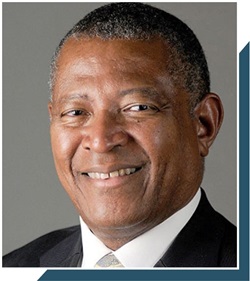
“High-speed reliable broadband is no longer nice to have. Today, it’s as important as gas, water, and electricity,” Perkins stated at the event. “In our increasingly digital society, cities without access to fiber broadband risk falling behind. It’s critical that the City of Selma makes fiber broadband accessible citywide by building utility-like infrastructure that serves our residents’ needs today and for generations to come.”
If you missed our most recent Building for Digital Equity Livestream – Life After ACP – the virtual event can still be seen in its entirety (below).
The entire event focused on the imminent end of the Affordable Connectivity Program (ACP) and featured a lineup of speakers who shared on-the-ground perspectives and approaches being adopted at the community level to deal with the broadband affordability crisis in the absence of the popular federal program that has served 23 million Americans since its inception two years ago.
As a bonus, we are sharing links to the speakers slide decks below.
The first of two lightning round speakers, Margaret Käufer – President of The STEM Alliance – gave an overview on the short and long-term work her organization is doing in upstate New York in the face of ACP’s demise. You can find her slide deck here.
The second lightning round presenter Jason Inofuentes – Program Manager for the Broadband Accessibility and Affordability Office in Albemarle County, VA – unveiled an ACP supplement program his office is pursuing and how they see things moving forward. Those slides are here.
The first of the main presenters – Monica Gonzales, Digital Equity Supervisor for Methodist Healthcare Ministries in Texas – gave an overview of what her faith-based nonprofit healthcare organization is doing to address affordable connectivity across the 74 county South Texas region served by MHM. Gonzales’ slides are here.
Language added to a New York State budget bill is threatening to undermine a municipal broadband grant program established by Gov. Kathy Hochul’s office earlier this year.
Known as the Municipal Infrastructure Program, it was designed to provide grant funding for municipalities in the state eager to build publicly-owned, locally controlled broadband infrastructure as a way to ensure ubiquitous, affordable access to high-quality Internet after decades of frustration with expensive, spotty and uneven service from the regional monopolies.
Currently, New York state lawmakers are in the midst of budget proposal season in which the Governor’s office and both legislative chambers (the state Senate and Assembly) have until April 1 to reconcile and complete a final budget for the upcoming fiscal year.
Buried near the bottom of the Assembly budget proposal (A8805B) is a Trojan horse legislative sources say is being pushed by lobbyists representing Charter Spectrum, the regional cable monopoly and 2nd largest cable company in the U.S. that was nearly kicked out of New York by state officials in 2018 for atrocious service.

In the latest episode of the podcast, Christopher reunites with Ry Marcattilio and Sean Gonsalves to tackle the conclusion of the Affordable Connectivity Program (ACP) and the pressing need for sustainable solutions to internet affordability across the United States.
Fresh from the recent Building for Digital Equity (B4DE) Event, this discussion zeroes in on internet affordability, shedding light on successful models and strategies employed by community-owned broadband networks in various municipalities. Examples from Pharr, Texas, and Chattanooga, Tennessee, illustrate effective approaches to providing affordable internet access within local communities.
Wrapping up the conversation are updates on recent developments, including the FCC's redefinition of broadband, the expansion of Longmont's municipal network in Colorado, and a sneak peek into an upcoming podcast episode covering the recent Tribal Broadband Bootcamp held at RantanenTown Ranch in Southern California.
This show is 25 minutes long and can be played on this page or using the podcast app of your choice with this feed.
Transcript below.
We want your feedback and suggestions for the show: please e-mail us or leave a comment below.
Listen to other episodes here or see other podcasts from the Institute for Local Self-Reliance here.
Thanks to Arne Huseby for the music. The song is Warm Duck Shuffle and is licensed under a Creative Commons Attribution (3.0) license.
In a recently published piece in The American Prospect, Sean Gonsalves, ILSR's Community Broadband Networks Initiative Associate Director for Communications, reports on four cities across the U.S. that are well prepared to deal with the demise of the Affordable Connectivity Program (ACP).
The article – titled "The Municipal Broadband Solution" – begins by laying out why Congress created the popular program and how letting the ACP go bankrupt undermines the national "Internet For All" Initiative now underway. However, while digital equity advocates across the nation rightly lament the demise of the program, the focus of the article is on cities that have figured out how to deliver afforable high-quality Internet access even without the ACP.
Here's a few excerpts:
Congress created the ACP to soften a harsh reality: Americans pay among the highest prices for broadband of any developed nation in the world, leaving tens of millions unable to afford internet service—something experts have long noted is a telltale sign of a broken market dominated by monopoly providers, and is at the very heart of why the U.S. digital divide is as massive as it is.
However, although federal lawmakers have known for over a year that the fund would be bankrupt by this spring, GOP congressional leaders have not budged on even bipartisan attempts to save the ACP, prompting the Federal Communications Commission (FCC) to announce in January that the agency was being forced to wind down the popular program.
It’s a major setback for the “Internet for All” effort, especially in light of a recent FCC survey that found 29 percent of ACP beneficiaries would be left without any home internet service whatsoever without the benefit, in an age when internet connectivity is a necessity for meaningful participation in 21st-century society.